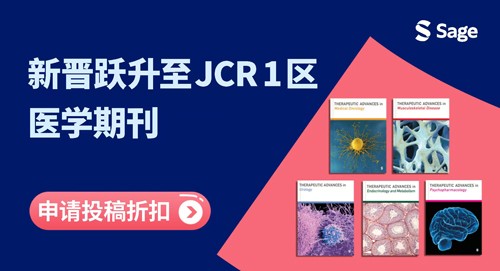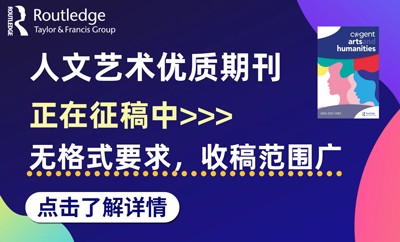-
The affordances of Artificial Intelligence (AI) and ethical considerations across the instruction cycle: A systematic review of AI in online higher education Internet High. Educ. (IF 6.8) Pub Date : 2025-07-19 Min Zhuang, Siyu Long, Florence Martin, Daniela Castellanos-Reyes
As Artificial Intelligence (AI) advances, discussions regarding its potential in education have attracted significant attention. This systematic review synthesizes AI affordances in online higher education, particularly identifying various ways AI is used throughout the online instruction cycle. We analyzed fifty-five studies focusing on publication trends, research methodology and quality, AI affordances
-
Empowering international PhD students: Generative AI, Ubuntu, and the decolonisation of academic communication Internet High. Educ. (IF 6.8) Pub Date : 2025-07-18 Lynette Pretorius, Huy-Hoang Huynh, Anak Agung Ayu Redi Pudyanti, Ziqi Li, Abdul Qawi Noori, Zhiheng Zhou
Generative AI (GenAI) provides distinct affordances that contribute meaningfully to learning. However, there are also several challenges, most notably ethical considerations. While much of the current research on GenAI in academia focuses on technical capabilities or ethical concerns, few studies have examined how GenAI can be leveraged to promote equity and inclusivity, particularly in academic communication
-
Navigating the Double-Edged Sword: A Meta-analysis of the Effect of Digital Games on 21st Century Skills Educ. Res. Rev. (IF 10.6) Pub Date : 2025-07-16 Chao Cheng, Katy Ieong Cheng Ho Weatherly
Digital games are a double-edged sword; while they may pose potential negative effects for players, they are also recognized as valuable tools for fostering 21st century skills. Although 21st century skills have been widely promoted, this is the first meta-analysis to examine the effect of digital games on players’ 21st century skills, specifically focusing on all 4C skills: critical thinking, creativity
-
Understanding the use of physical computing in K-12 education: A systematic literature review Educ. Res. Rev. (IF 10.6) Pub Date : 2025-07-14 Katherine Vergara, Pedro O. Rossel, Valeria Herskovic
Physical computing is a field that involves the use of sensors, actuators, and microcontrollers to build systems that interact with the environment. This approach has been used in education, particularly to teach computer science, programming, computational thinking, and design concepts. This systematic review explores the use of physical computing in K-12 education, with a focus on what educational
-
The truth sandwich format does not enhance the correction of misinformation. Journal of Educational Psychology (IF 6.4) Pub Date : 2025-07-14 Briony Swire-Thompson, Lucy Butler, David N. Rapp
-
The Role of Teachers' Emotions and Their Assessment in Professional Development Research: A Systematic Review. Educ. Psychol. Rev. (IF 8.8) Pub Date : 2025-07-12 Mareike Ehlert,Carola Grunschel,Friederike Koehler
Professional development (PD) both influences and is influenced by teachers' emotions, yet emotions remain unaddressed in PD frameworks. This study pursues three objectives: (1) to offer a theoretical framework illustrating how PD processes influence and are influenced by teachers' emotions, (2) to systematically review how empirical studies have assessed teacher emotions in PD, and (3) to synthesize
-
Characteristics of Interprofessional Collaboration Between Educational Psychological Services and Schools: A Scoping Review Educ. Res. Rev. (IF 10.6) Pub Date : 2025-07-11 Helene Hallaråker, Elisabeth Hesjeda, Christian Brandmo
Interprofessional collaboration is the preferred working approach for supporting children with special educational needs. Furthermore, educational psychology services (EPS) have been identified as a significant means of realizing the ideals of inclusive education for at-risk children. However, the literature on interprofessional collaboration is highly dominated by research in healthcare context with
-
Transactional associations among children’s externalizing and internalizing behaviors, teacher and peer relationships, and academic performance. Journal of Educational Psychology (IF 6.4) Pub Date : 2025-07-10 Idean Ettekal, Minoo Mohammadi, Qinxin Shi
-
-
School-level academic and cultural demands and resources: Their role in immigrant students’ motivation and achievement. Journal of Educational Psychology (IF 6.4) Pub Date : 2025-07-10 Andrew J. Martin, Gregory Arief D. Liem, Rebecca J. Collie, Lars-Erik Malmberg, Tim Mainhard
-
Practice does not make perfect: Experimental evidence on the effectiveness of coaching beginning teachers. Journal of Educational Psychology (IF 6.4) Pub Date : 2025-07-10 Julie Cohen, Vivian Wong, Qing Liu, Kristyn Wilson, Anna Yonas, Hallie Parten
-
“So no one feels left out”: Latinx youths’ and parents’ reimagined school realities in the context of cultural stressors. Journal of Educational Psychology (IF 6.4) Pub Date : 2025-07-10 Elma I. Lorenzo-Blanco, Kimberly L. Henriquez, Michelle Y. Martin Romero, Gabriela Livas Stein, Alejandra Garcia Isaza
-
Black and Latine youth thinking about punitive and restorative approaches in relation to race/ethnicity. Journal of Educational Psychology (IF 6.4) Pub Date : 2025-07-10 Gabriel Velez, Amelia Kasper
-
Are early career teachers innovative? A comparison with other university graduates. Journal of Educational Psychology (IF 6.4) Pub Date : 2025-07-10 Verena Jörg, Ulrike Hartmann, Franziska Baier-Mosch, Stefanie Gäckle, Mareike Kunter
-
New online tools to assess children’s implicit social cognition: Replication and generalization of in-person research. Journal of Educational Psychology (IF 6.4) Pub Date : 2025-07-10 Dario Cvencek, Elizabeth A. Sanders, Craig D. Maddox, Andrew N. Meltzoff
-
Navigating science pathways: Belonging mediates the impact of goal congruity on persistence (but not life satisfaction) among Indigenous students. Journal of Educational Psychology (IF 6.4) Pub Date : 2025-07-10 Fanyi Yu, Juliet M. Nyanamba, Brittany Anderson, Kathy DeerInWater, Mica Estrada, K. Kanoho Hosoda, Natalia Maldonado, Tiffany Smith, Lilibeth Flores, Paul R. Hernandez
-
Parents’ academic expectations and aspirations predict students’ achievement emotions. Journal of Educational Psychology (IF 6.4) Pub Date : 2025-07-10 Michiko Sakaki, Kou Murayama, Anne C. Frenzel, Thomas Goetz, Herbert W. Marsh, Stephanie Lichtenfeld, Miriam Wünsch, Reinhard Pekrun
-
What it takes to tutor—A preregistered direct replication of the scaffolding experimental study by D. Wood et al. (1978). Journal of Educational Psychology (IF 6.4) Pub Date : 2025-07-10 Nienke Smit, Renske de Kleijn, Jelte M. Wicherts, Janneke van de Pol
-
Education as a natural experiment: The effect of schooling on early mathematical and reading abilities and their precursors. Journal of Educational Psychology (IF 6.4) Pub Date : 2025-07-10 Floor Vandecruys, Maaike Vandermosten, Bert De Smedt
-
Challenge and threat appraisal of tests in high school: Integrating educational psychology and biopsychology improves understanding of how students take tests. Journal of Educational Psychology (IF 6.4) Pub Date : 2025-07-10 Roger Kennett, Andrew J. Martin, Joel Pearson, Emma C. Burns, Rebecca J. Collie
-
Implementing Formative Assessment Into School Practice: A Matter of Structuring the Intervention? J. Teach. Educ. (IF 4.1) Pub Date : 2025-07-10 Larissa Aust, Jeanne-Celine Linker, Luise Eichholz, Jana Schiffer, Marcus Nührenbörger, Christoph Selter, Elmar Souvignier
Only limited evidence exists on how to best make the effective yet broad concept of formative assessment (FA) accessible to teachers. Thus, this study investigated the effects of two differently structured FA approaches (curriculum-embedded assessment [CE] vs. planned-for-interaction assessment [PI]) on implementation outcomes over time. A total of N = 118 mathematics teachers participated in a six-session
-
When Money Matters Most: Unpacking the Effectiveness of School Spending Sociol. Educ. (IF 2.8) Pub Date : 2025-07-10 Emily Rauscher, Greer Mellon, Susanna Loeb, Carolyn Abott
Targeted school funding is a potentially valuable policy lever to increase educational equality by race, ethnicity, and income, but it remains unclear how to target funds most effectively. We use a regression discontinuity approach to compare districts that narrowly passed or failed a school funding election. We use close tax elections in nine states to identify effects of operating funds, and we use
-
The GenAI divide among university students: A call for action Internet High. Educ. (IF 6.8) Pub Date : 2025-07-09 Karley Beckman, Tiffani Apps, Sarah Katherine Howard, Claire Rogerson, Ann Rogerson, Jo Tondeur
The rapid pace of technological change with generative artificial intelligence is accelerating much faster than our capacity to understand and regulate it. Higher education institutions have been firmly focused on the impacts of this innovation on academic integrity while grappling with unknown longer-term impacts on students' academic study and future work. This mixed method study aims to capture
-
The conceptualisation of goal setting and goal orientation in higher education: A systematic literature review Educ. Res. Rev. (IF 10.6) Pub Date : 2025-07-08 Kõue Heintalu, Katrin Saks, Natalia Edisherashvili, Izaak Dekker
Student goals play a crucial role in both practice and theory in higher education, particularly for understanding and enhancing student motivation. However, on a conceptual level, goals are studied through separate and isolated frameworks, which complicates the ability of practitioners and researchers to combine insights from both streams of scholarship effectively. This systematic review aimed to
-
Active Learning Strategies in Video Learning: A Meta-Analysis Educ. Res. Rev. (IF 10.6) Pub Date : 2025-07-05 Yi Zhang, Rongna Li, Zhongling Pi, Jiumin Yang
Active learning strategies embedded in video content have become increasingly prominent tools for enhancing learners' educational experiences. However, the literature offers varied results concerning their effectiveness. In this research, we conducted a series of meta-analyses to assess the influence of active learning strategies on learners’ motivation, cognitive load, and learning performance. On
-
-
-
-
-
-
-
-
-
-
-
The impact of educational activities on professional identity formation in social sciences and humanities: a scoping review Educ. Res. Rev. (IF 10.6) Pub Date : 2025-07-02 Joram Pach, Malou Stoffels, Linda Schoonmade, Erik van Ingen, Rashmi A. Kusurkar
Higher education programs increasingly emphasize professional identity formation (PIF) within their curricula, particularly in fields such as medicine and teacher education. Programs in social sciences and humanities (SSH) also increasingly recognize their role in preparing students for professional futures, yet knowledge on PIF in these disciplines is less integrated into the body of literature. This
-
Parallel empathy or reactive empathy? The role of emotional support provided by affective pedagogical agent in online learning Internet High. Educ. (IF 6.8) Pub Date : 2025-07-01 Yanqing Wang, Shaoying Gong, Yang Cao, Ying Liu
To increase human-computer interaction and motivate university students' online learning, this study investigated the effects of affective pedagogical agent (PA) providing parallel empathy and reactive empathy in an online learning scenario. In a 2 (Parallel empathy: yes vs. no) × 2 (Reactive empathy: yes vs. no) between-subjects design, 122 university students learned 10 psychological concepts about
-
Maximizing effectiveness of AI-generated instructors through human-like behavior and dynamic visual cues in instructional videos: Evidence from an eye-tracking study Internet High. Educ. (IF 6.8) Pub Date : 2025-07-01 Tao Xu, Qian Chen, Zhiwei Zhang, Bingyu Dong, Hui Zhang, Jie Bai, Yun Zhou
The rapid advancement of Artificial Intelligence Generated Content (AIGC) has revolutionized the production of instructional videos and lectures in MOOCs, opening a new chapter in their use for education. This technology enables the generation of talking instructors from text and images or clips of real people. However, the impact of behavioral fidelity and visual cues provided by these generated instructors
-
Measuring spelling skills: A meta-analysis of the convergence of dictation and error detection tasks Educ. Res. Rev. (IF 10.6) Pub Date : 2025-06-30 Darius Endlich, Wolfgang Lenhard, Peter Marx, Tobias Richter
Accurate spelling is essential for academic and professional achievement. Developing cost-effective assessments to provide early support for children experiencing difficulties with spelling is crucial. In the past, dictations have been the primary method for measuring spelling skills. However, given that reading and spelling rely on shared orthographic knowledge, detecting spelling errors might serve
-
From teacher motivation to teaching behaviour: A systematic review and theoretical framework of the mediating processes Educ. Res. Rev. (IF 10.6) Pub Date : 2025-06-28 Rebecca Lazarides, Ulrich Schiefele, Martin Daumiller, Markus Dresel
Teacher motivation plays a key role in achieving a high instructional quality. However, there is a clear need for more detailed research on the underlying mechanisms that link teacher motivation to high-quality instruction. In this systematic literature review, we synthesize existing empirical work examining the intrapersonal processes mediating the relations between teacher motivation and teaching
-
Meta–analyzing the impacts of social robots for children's language development: Insights from two decades of research from 2003 to 2023 Educ. Res. Rev. (IF 10.6) Pub Date : 2025-06-28 Xinghua Wang, Linlin Li, Qiyun Wang, Baichang Zhong, Yaqian Xu
Robotics technologies powered by artificial intelligence are revolutionizing language learning, particularly for children who are at critical stages of language development. With the increasingly prevalent use of social robots in children's language acquisition, however, a comprehensive understanding of their effectiveness in this regard remains lacking. To address this gap, this study conducted a
-
Cognitive Load and Challenges in Self-regulation: An Introduction and Reflection on the Topical Collection. Educ. Psychol. Rev. (IF 8.8) Pub Date : 2025-06-27 Anique B H de Bruin,Eva M Janssen,Julia Waldeyer,Ferdinand Stebner
The effort monitoring and regulation (EMR) model integrates self-regulated learning and cognitive load theory to examine how students monitor, regulate, and optimize effort during learning. Since its introduction in 2020, it has inspired research that explores how to correct learners' misinterpretations of effort and metacognitive biases and how instructional interventions can improve learning strategies
-
-
The Brilliance-Belonging Model: How Cultural Beliefs About Intellectual Ability Undermine Educational Equity. Educ. Psychol. Rev. (IF 8.8) Pub Date : 2025-06-25 Christina A Bauer,Aashna Poddar,Eddie Brummelman,Andrei Cimpian
As societies worldwide grapple with substantial educational inequities, understanding their underlying causes remains a priority. Here, we introduce the Brilliance-Belonging Model, a novel theoretical framework that illuminates how cultural beliefs about exceptional intellectual ability create inequities through their impact on students' sense of belonging. The model identifies two types of widespread
-
The association between teacher self-efficacy and student academic performance: A systematic review and meta-analysis Educ. Res. Rev. (IF 10.6) Pub Date : 2025-06-21 Kang Ma, Michael Cavanagh, Junhua Zhang, Muhammad Chutiyami
This meta-analysis includes 71 studies representing 254619 teachers and the academic performance of their students. The results indicate significant but small effect sizes for overall TSE constructs on academic performance, r from 0.063 to 0.192. The two largest effect sizes are between overall TSE for subject teaching and overall TSE, outperforming the personal and general efficacy (Gibson & Demo
-
“It Changed Continuously, and I Don’t Know When”: Thai Preservice Biology Teachers’ Orientations to Teaching Science J. Teach. Educ. (IF 4.1) Pub Date : 2025-06-19 Luecha Ladachart, Ladapa Ladachart
This research examines changes in orientations to teaching science among 37 preservice biology teachers, who primarily intend to work in secondary education, during a 5-year program of science teacher education in Thailand. Data were collected twice, in the first and fourth years of the program, using the same Pedagogy of Science Teaching Test, in which participants quantitatively chose their preferred
-
Enhancing online college students' self-regulated learning and performance through self-assessments and commitment strategies Internet High. Educ. (IF 6.8) Pub Date : 2025-06-18 Kun Huang, Anita Lee-Post
This study examines the impact of a combined self-assessment and commitment strategy intervention on college students' self-regulated learning (SRL) and academic performance in asynchronous online learning. Using an ex post facto control design, we compared students' performance and behavioral analytics across three course units in two consecutive years of a large online college course. Compared to
-
From silence to melody: adding a post-structuralist lens to more-than-representational theory to analyze power dynamics in the classroom J. Learn. Sci. (IF 3.9) Pub Date : 2025-06-18 Sahar Tueg, Juliana Hashoul, Yotam Hod
-
The Great Leveler? Juvenile Arrest, College Attainment, and the Future of American Inequality Sociol. Educ. (IF 2.8) Pub Date : 2025-06-18 Garrett Baker, David S. Kirk, Robert J. Sampson
A burgeoning literature suggests that criminal justice contact in adolescence hinders educational attainment, but prior research primarily considers short-term outcomes and relies on self-reported arrest information. In this article, we leverage Illinois administrative records over 25 years linked to a multicohort longitudinal study to provide estimates of whether an officially recorded juvenile arrest
-
Temporal structuring in asynchronous discussions: Designing for collaborative learning in online university courses Internet High. Educ. (IF 6.8) Pub Date : 2025-06-15 Arita L. Liu, Philip H. Winne, John C. Nesbit
Asynchronous online discussions (AOD) offer pedagogical advantages as a social learning tool, but their success largely depends on students' motivated participation and sustained engagement. Recent research highlights the potential of leveraging temporal data to understand discussion dynamics and inform instructional strategies. However, the role of contextual factors in analyzing temporal data has
-
Changes in online engagement at the within-person level, profiles, dynamics and association with achievement Internet High. Educ. (IF 6.8) Pub Date : 2025-06-15 Mohammed Saqr, Sonsoles López-Pernas
While the dominant population-based research is immensely useful in revealing the general trends, it falls short of capturing the intraindividual –or within-person – changes on the individual level. Capturing the individualized processes helps create personalized interventions and advance our understanding of the person in which the learning process takes place. This study aimed at modeling the within-person
-
Evaluating the impact of online course development and teaching certificate academy on university faculty teaching practices through student learning experiences and faculty perceptions Internet High. Educ. (IF 6.8) Pub Date : 2025-06-02 Nedim Slijepcevic, Wanju Huang
This study evaluates the effectiveness of a faculty professional development (PD) course titled – Online Course Development and Teaching Certificate Academy (OTA), which focuses on the technology, pedagogy, and instructional design concepts essential for transitioning to online classrooms. OTA follows the Community of Inquiry principles by integrating social, teaching, and cognitive presences throughout
-
AI in higher education: A bibliometric analysis, synthesis, and a critique of research Internet High. Educ. (IF 6.8) Pub Date : 2025-06-01 Ahmed Lachheb, Javier Leung, Victoria Abramenka-Lachheb, Rajagopal Sankaranarayanan
To better characterize and understand AI in higher education and its role in relation to educational disparities and inclusivity, this paper presents a comprehensive bibliometric assessment of research on AI in higher education. Using quantitative topic modeling and qualitative analysis methods, this study describes: (1) the research landscape of AI in higher education and (2) the common topics of
-
Promoting inclusive practices with emerging technologies in higher education: Faculty professional development through blended-learning Internet High. Educ. (IF 6.8) Pub Date : 2025-05-31 Anabel Moriña, Víctor H. Perera
University institutions face the challenge of training faculty in inclusive digital skills to provide quality education for all. This paper presents a study that designed, developed, and evaluated a blended-learning training programme for faculty in Spain, focusing on emerging technologies from an inclusive perspective. A qualitative methodology was employed, incorporating a case study approach with
-
The interplay among digital distraction, self-regulation of learning tendencies, and motivational influences: A transnational investigation Internet High. Educ. (IF 6.8) Pub Date : 2025-05-30 Abraham E. Flanigan, Anna C. Brady, Mete Akcaoglu, Yan Dai, Sungjun Won, Bridget K. Daleiden, Kendall Hartley
College students' misuse of mobile devices during class for off-task purposes is a global issue that harms learning. While prior studies examined device misuse frequency within individual countries, no known studies have directly compared transnational differences in this behavior, leaving little known about whether crosscultural differences influence this behavior. This study investigates whether
-
A scoping review of the factors contributing to a sense of belonging in early career teachers Educ. Res. Rev. (IF 10.6) Pub Date : 2025-05-29 Ebony Melzak, Kelly-Ann Allen, Rhea Jain, Marc Pruyn
Teacher burnout and attrition present critical challenges for education systems globally, with up to 50 % of early career teachers (ECTs) leaving the profession within their first five years. While research has linked teacher belonging to increased resilience, job satisfaction, and organisational commitment, limited systematic understanding exists regarding how to foster belonging specifically among
-
Meta-analysis of associations between digital parenting and children's digital wellbeing Educ. Res. Rev. (IF 10.6) Pub Date : 2025-05-29 Cheng Yong Tan, Naiqi Xu, Mengyi Liang, Li Li
The present study is contextualized in the rapidly digitalizing world where many parents struggle to maximize their children's online learning opportunities and protect the latter against online risks. It employed three-level meta-analysis to synthesize findings from 88 primary studies (2008–2024) on associations between digital parenting (positive mediation, negative mediation, co-use, general digital
-
Supporting teachers through curriculum-based professional learning: Shifting teachers’ instructional vision of science to empower student voice J. Learn. Sci. (IF 3.9) Pub Date : 2025-05-28 Katherine L. McNeill, Renee Affolter, Benjamin R. Lowell, Kevin Cherbow, Casandra Gonzalez, Samuel Lee
-
Can we design for healing in the learning sciences? J. Learn. Sci. (IF 3.9) Pub Date : 2025-05-28 A. Susan Jurow, Elizabeth Mendoza, Krista L. Cortes
-
“From personal experience, it’s true!”: Students’ digital evaluations on relevant issues J. Learn. Sci. (IF 3.9) Pub Date : 2025-05-28 Elizabeth C. Reynolds, Sarah McGrew






























































 京公网安备 11010802027423号
京公网安备 11010802027423号